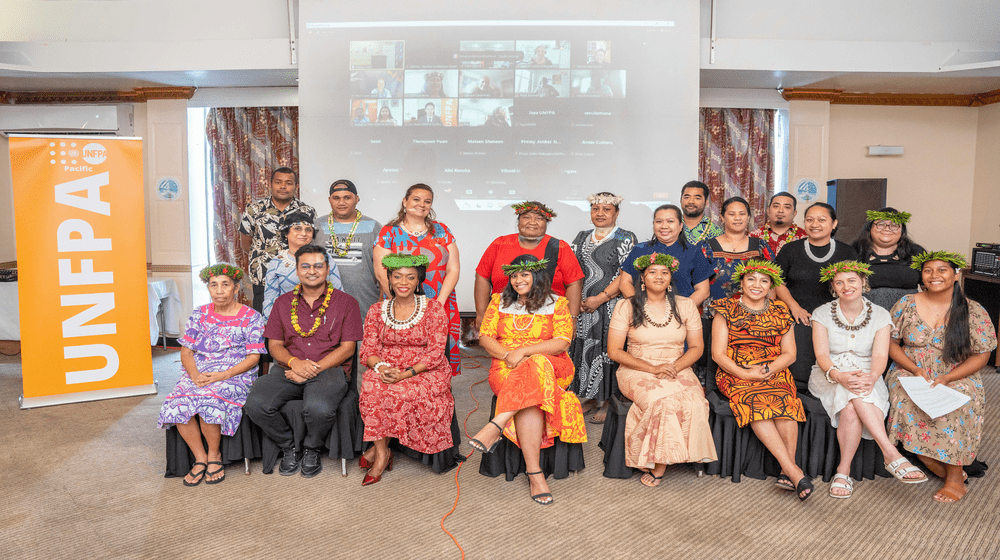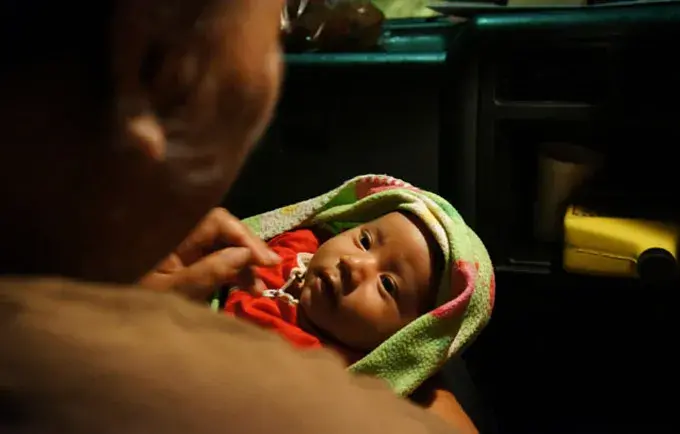MAJURO, the Marshall Islands – The United Nations Population Fund (UNFPA) launched a compilation of testimonies of key government officials, NGO partners and youth who were spearheading the activities to advance sexual and reproductive health and reproductive rights for young people in the Federated States of Micronesia (FSM) and the Republic of the Marshall Islands (RMI) through the project supported by the government of New Zealand.
According to the estimate by UNFPA and the Pacific Community (SPC), 49% of the population of FSM are 24 years of age or below, and the age cohort accounts for 59% in RMI. Both countries have been facing challenges in curtailing teenage pregnancy and also in eliminating gender-based violence. “A key for a successful economic growth depends on whether the country can harness the potential of young people and reap the so-called ‘Demographic Dividends,’ through a conscious investment of resources into ensuring good health among young people, including their sexual and reproductive health, and into their education, and in developing leadership and employability of the youth, as well as investment for promoting gender equality,” says Iori Kato, UNFPA Director for the Pacific and Representative in Fiji.
It is in this context that UNFPA Pacific Sub-Regional Office (PSRO) has been assisting both FSM and RMI in further advancing universal access to sexual and reproductive health services especially for the adolescents and youth, through the United Nations Pacific Strategy Fund supported by New Zealand’s Ministry of Foreign Affairs and Trade (MFAT) from which UNFPA Pacific received NZD 2.8 million.
This project implemented from July 2020 and just ended in September 2023 achieved salient results in making the sexual and reproductive health service provision in both FSM and RMI even more youth-friendly, despite challenges posed by the COVID-19 pandemic and climate crises during the implementation period. Both countries have developed national adolescent and youth friendly SRH services guidelines. 100% of the secondary and tertiary health facilities in both countries now have at least one service provider who has been trained for providing youth friendly services, through this project. Further, both FSM and RMI have decided to integrate the international-standard comprehensive sexuality education (CSE), or what is commonly referred to in the Pacific as the Family Life Education (FLE), in the school curricular subjects. RMI became one of the first countries in the Pacific to initiate FLE at the primary schools between Grades 4-6, and FSM for Grades 6-8.
The brochure entitled the “Stories of Change” compiled the journeys of key government officials and other “youth SRHR Champions” who contributed to these achievements, with their testimonies. Their stories were put together, in partnership with UNFPA Pacific’s regional partner, Family Planning Australia. The hybrid launching event of the stories held on 28 September 2023 was joined by more than 50 participants, including the Ambassador of New Zealand to the Federated States of Micronesia, the Republic of the Marshall Islands, the Republic of Palau, H.E Mike Ketchen, and other officials from MFAT, senior officials from ministries and departments of health, education, culture and internal affairs and other offices of both FSM and RMI, NGO/CSOs, and representatives of young people, alongside Pacific Director Kato and other UNFPA officials based in Pohnpei, Majuro as well as Suva, Fiji.
Ambassador Ketchen said, “We are grateful for the way UNFPA has supported RMI and FSM to learn from international best practice in sexual and reproductive health. Working in true partnership to ensure services are offered in a way that is fit-for-purpose for each unique context. Delivering these health services in a way appropriate to the social, cultural and geographical context can make all the difference to the youth in RMI and FSM.”
Ms. Francyne Wase-Jacklick, Secretary, Ministry of Health and Human Services, RMI, emphasized the importance of taking youth SRH/RR into account at the development programme planning and execution at the local level, adding that a whole-of-the-nation approach is important, including engaging CSO/NGOs, in ensuring that young people can access SRH services in a way that is confidential and non-judgmental.




